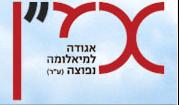The conference will be held on Wednesday, May 21 at the Weizmann Institute of Science

A unique scientific conference on multiple myeloma will bring together scientists, doctors and patients, with the aim of developing and strengthening the dialogue between science and medicine in everything related to the disease. The conference will be held on Wednesday, May 21 at the Weizmann Institute of Science. In the first part of the conference, pairs of lecturers - from the field of basic research and the field of medicine - will discuss various topics that characterize the myeloma disease, each from his own point of view.
In the afternoon, the second part of the conference will take place, which is actually the annual conference of the AMN Association (Multiple Myeloma Association), which was established in 2005 by patients with the disease. In the association's meeting, all the factors working for the successful continuation of the fight against myeloma are combined - researchers, doctors and of course the patient public. The organizers of the conference, which is being held this year at the Weizmann Institute of Science, hope that it will generate new ideas, as well as collaborations between scientists and doctors, to promote options for treating the disease.
Multiple myeloma is a disease of the bone marrow. It is a malignant disease (cancer) of plasma cells that are formed and are found in the bone marrow. The diseased plasma cells are cells in which there is a genetic disruption that causes uncontrolled division. In their new behavior, the cells cause excessive absorption of bone, and the creation of weak areas in the bone to the point of the appearance of spontaneous fractures (without load) of the bone. Those cells produce and secrete specific proteins into the blood system and from there to the kidneys - some are found outside the body through the urinary system, but they may cause kidney failure.
Additional damages and injuries may occur at different levels, such as damage to the balance of the blood components: a decrease in red blood cells (anemia), a decrease in white blood cells and the weakening of the immune system.
As of today, the disease cannot be cured, but it is possible to control the disease and suppress its activity to the point of returning to a normal lifestyle for many years. Throughout the world and also in Israel, many studies are being conducted to find new drugs and treatments for the disease, and already today there are various alternatives that allow a specific adjustment of the treatment to the patient - according to his condition.
Dr. Benzi Katz, one of the organizers of the conference, says: "In recent years, new drugs have come into use to treat myeloma, some of which - such as thalidomide and Volcade - have even been included in the drug basket. But despite the expansion and improvement in the treatment options for the disease, there is still a lot of work to be done."
"New drugs are created in a long and drawn-out process that begins with basic scientific research, and it sometimes takes years until they are ready for clinical use. The origin of the Valcade drug, for example, is a biochemical study on the control processes of protein levels in the cell that began in the 70s of the 20th century, and awarded its authors, Prof. Aharon Chachanover and Prof. Avraham Hershko, the Nobel Prize in Chemistry in 2004.
"The malignant cells in myeloma disease, similar to most cancerous tumors, develop resistance to drugs and treatments, and because of this, doctors find it difficult to achieve remissions in the disease, and of course a cure. Therefore, there is a need for the constant development of new drugs that will be based on the inhibition of as many mechanisms as possible in the disease cells. Such development processes require a constant dialogue between the scientists engaged in deciphering the basic mechanisms that control the behavior of the cells and the doctors who are well acquainted with the disease, its reactions to various treatments and the effect of the drugs on the patients."
The topics that will be discussed at the conference include:
- Control of the death of cells and the resistance of myeloma cells to chemical treatments - Medicine: Prof. Dina Ben Yehuda from Hadassah Ein-Kerem Hospital, Jerusalem; Basic science: Prof. Adi Kimchi, from the Weizmann Institute of Science
- Dedicated treatments for multiple myeloma - Medicine: Dr. Yizhar Hardan, Sheba Medical Center, Tel Hashomer; Basic science: Prof. Alex Levitsky from the Hebrew University, Jerusalem
- Transplantation of hematopoietic stem cells in multiple myeloma - Medicine: Prof. Yaakov Rao, from Rambam Hospital, Haifa; Basic science: Dr. Shulamit Levenberg from the Technion in Haifa;
- Bone disease in multiple myeloma - Medicine: Dr. Hila Magen, from the Rabin Medical Center, Petah Tikva; Basic science: Prof. Dov Tzipori, from the Weizmann Institute of Science.
- Guest lecture: Unsolved issues in multiple myeloma - Prof. Paul Richardson from the Dana Farber Medical Center in Boston, USA
The Aman association, established by patients in 2005, works, among other things, to raise awareness among the treatment and research bodies of the myeloma patients, as well as to improve the quality of life of the patients and their family members. The association also works to maintain a dialogue between research, medicine, and patients. The association is not affiliated with any medical center or with a particular therapeutic approach.
Association website

One response
Is the conference of the AMN association open to the general public?